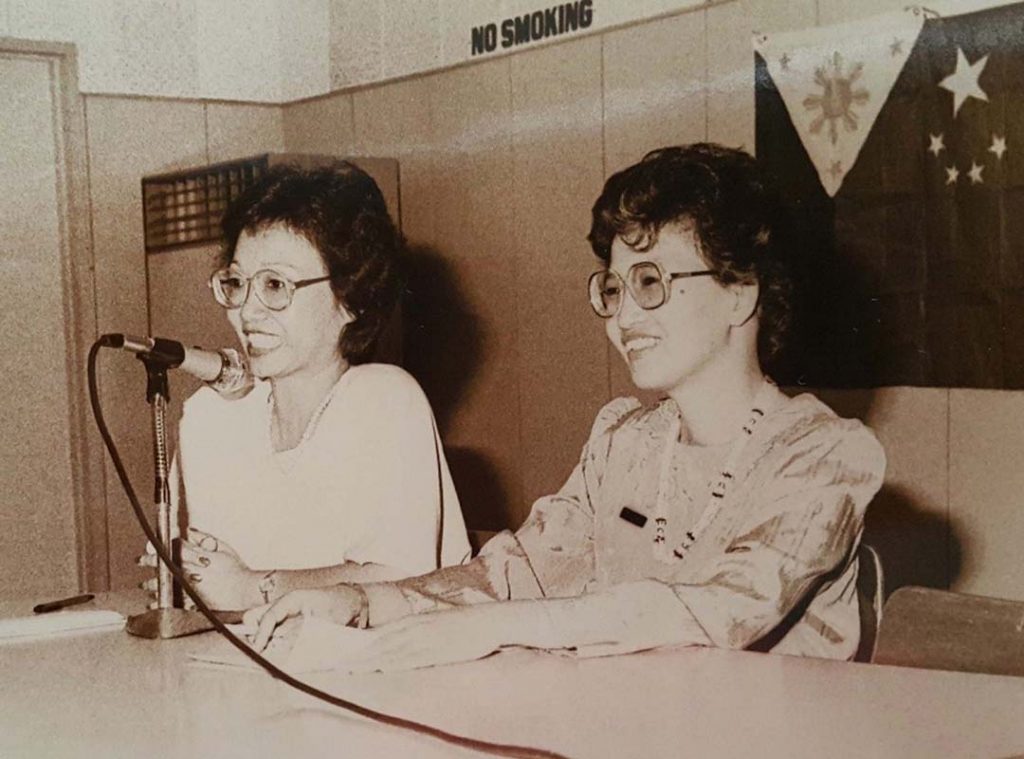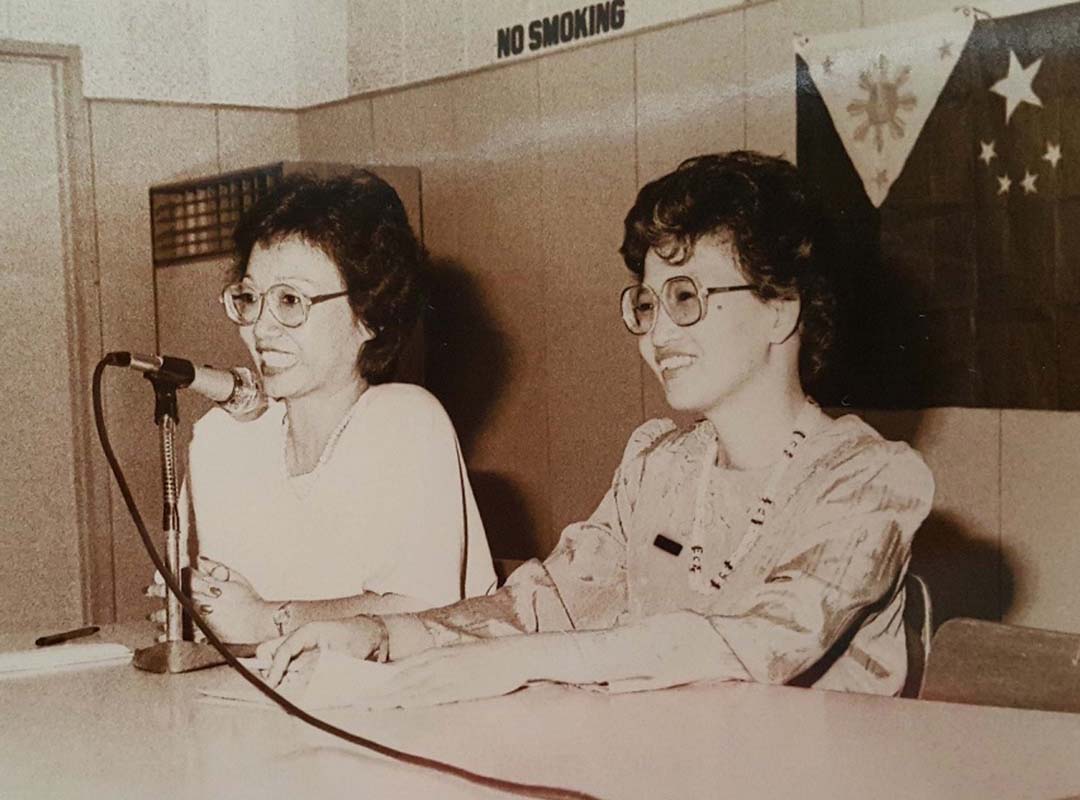First published in Tulay, Chinese-Filipino Digest 1, no. 3 (August 1988): 10.
The history of Chinese women in Southeast Asia has been a recent one. Most of the early Chinese who came to the Philippines were traders or laborers who left their wives and families in China. Thus, even as late as 1903, there were only 517 women out of 41,035 Chinese in the Philippines — a sex ratio of 13 females to 1,000 males!
It was only after the outbreak of the second World War that Chinese women were allowed entry in large numbers. Refugees from the Sino-Japanese War, many were allowed to join their relatives in Manila. This influx wrought significant changes in the local Chinese community.
The women from the mainland brought fresh infusions of Chinese culture, reinvigorating traditional customs, and religious practices among the overseas Chinese.
In recent times, however, this role had changed dramatically. Cut off from mainland China between 1949 and 1975, the Chinese community has become more rooted in the Philippines. As a result, younger generations of ethnic Chinese have grown up in a totally Filipino environment.
Young ethnic Chinese women today differ greatly from their mothers and grandmothers in attitudes, perceptions and social roles. The young Chinese women now enjoy greater access to college education and with it, a wider variety of occupational opportunities.
In fact, a recent survey has shown that ethnic Chinese women in Metro Manila spend more time informal education than the men. Whereas Filipino Chinese businessmen continue to expect their sons to take over in the family enterprise, they put less pressure on their daughters to engage in business.

The women are thus freer to enter into a wide variety of professions ranging from the practical to the esoteric. It is not surprising today to find them in occupations ranging from airline receptionists to university professors; cause-oriented activists to vice-president of a bank.
Yet, only 15 years ago, all this would have been inconceivable in many families. Chinese men used to prevent their wives or daughters from working outside of the family business, fearful that it would reflect badly on the economic and social status of the family.
A well-provided wife does not work, it was argued. Today, many women are working even after marriage, taking on sideline businesses for additional income or just enjoy a sense of independence and self-fulfillment.
A comparison of two generations of Philippine-Chinese women shows the rapidity with which changes are occurring in terms of attitudes and perceptions. In a study of co-eds at De La Salle University two years ago, there was evidence that their attitudes differed considerably from those of their mothers.
There was a greater orientation on the part of the older generation to make sharper role distinctions between the sexes. Most of the younger women felt that men should share in housekeeping chores, that women should participate in politics and lastly, that business was an area open for both male and female participation.
Only a third of their mothers shared these views. Understandably, the co-eds were rather critical of the roles ascribed to their mothers. One respondent observed that in the past, women had been contented in being “plain housewives” and even if they possessed jobs out-side the home, were unable to pursue their careers to the fullest extent.
Another criticized her mother for being conservative — lamenting the fact that she still believed that “women should eat leftovers!”
It is obvious that increased educational and employment opportunities have had revolutionary implications for ethnic Chinese women. Their rapid absorption into business, the professions and politics has been phenomenal.
Nevertheless, ethnic Chinese women still have a long way to go in changing the traditional patriarchal structure of the Filipino-Chinese community.





